#that would be ludicrous
Explore tagged Tumblr posts
Text
sat down to play and instead spent the entire frickin evening trying to find out why my default skin won't show on only one sim.
moments like these make me want to delete my mods folder.
0 notes
Text
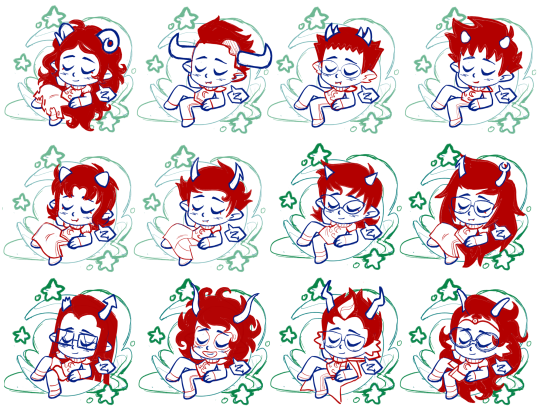
Hi I'm still alive just really busy but here's some sketches for dreamer pins I'll be making soon
#m#wish i could make these as enamel pins but that would be LUDICROUSLY expensive alas#homestuck#aradia#tavros#sollux#karkat#nepeta#kanaya#terezi#vriska#equius#gamzee#eridan#feferi
488 notes
·
View notes
Text
Imagine being Orion in A Deadly Education.
People are mostly not that interesting to you. They don't like you so much as they like what you can do. Maybe at some point you tried to really connect with someone, and it didn't go that well, so you didn't keep trying. Fighting mals though? You're good at that. It makes sense to you, unlike most of the things people do. It's rewarding -- intrinsically rewarding -- and people seem to be happy that you're doing it? Because they don't like doing it but it benefits them. So, basically no downside.
And you go off to school and it's full of mals, and people think you're great because you fight the mals, and you ignore them as best you can when you're not fighting mals for them. (You're polite, your mother always wanted you to be polite and you don't want people to be mad at you. But you don't do anything beyond being polite.) And people seem to think you're doing a good thing. So. It's ok. It's good enough. The world makes sense, more or less. This is what you're for.
And one day you see a soul eater go under another student's door, and you destroy it like you always do. Except this person is mad at you. Which makes no sense. No one's ever been mad at you before, not for fighting mals. So apparently you did something wrong even though you only did what you always do which has always been right before. But you guess you should probably make it up to her? So when she says she needs to go to the shop at dinner you offer to go with her, why not?
Except somehow she's mad at you again. So you have to make it up to her even more now, you guess?
(You don't like it when people are mad at you, but you know what to do when people are mad at you. You Make It Up To Them, usually by doing whatever they tell you to or fighting a mal or both, and then they stop being mad at you. You prefer to understand why they are mad at you, but most of the time it makes no sense, and you know what to do when it makes no sense to you why someone is mad at you.)
So you guard her door while she fixes it. Which takes her a weirdly long time. You've just taken down several mimics, you're bursting with mana, you'd give her some if she asked. Mana has never been a scarce resource for you; on some level it hasn't really occurred to you that it could be a scarce resource for anyone else. People aren't that interesting to you, you don't think about them much, except when someone tells you to, like your mother making you do flash cards of other kids' names. But she doesn't ask, and she doesn't cheat either, she does things the long and hard way, which makes a third thing all coming from the same person that doesn't mesh with your pre-existing worldview. She's fascinating.
And then she pulls on your mana like it's nothing and she's even more fascinating. How did she do that? Is she a malificer? (Is that why she keeps being so mean to you, when nobody is ever mean to you?) What's going on?
And you've never voluntarily fought alongside anyone else before, but she's good to fight with. She's annoying, but she does also point out things you missed or didn't know.
And she stands up for you, in a way that nobody has ever stood up for you before. She's not nice. She's the opposite of nice. But it's starting to dawn on you that being nice is not the same as something else that seems like it should go with being nice. And if El is not nice to you but is that other thing, maybe some other people who are nice to you are...not that other thing to you?
It's a lot to think about.
Anyways. You like her. You're not very interested in people. But you are interested in El.
And then you have the best day of your life, when you've gotten to take on more mals and scarier mals than you've ever taken on before, and you did it and you were good at it, and you kind of didn't want to leave but you were supposed to leave because that was how the Mission worked, and then you were about to die because you missed the bell and the cleansing fires had started and there was nowhere to go, but at least you were going to die next to El.
But she didn't think she was going to die, and she cast a wall of mortal flame (who does that?) and it worked as a firebreak and you didn't die and no one had ever saved you before. That wasn't how the world worked. Who was this person who kept breaking the rules of how the world worked like they didn't even apply to her?
(And then you look around and she isn't there and you kissed her earlier when you thought you were both going to die, and she, uh, didn't react well and oh no, what if you've ruined everything what if you like her but she doesn't like you like that what if she won't want to be around you any more? What if the one interesting person in the entire world doesn't think you are interesting?) (it'd be ok, right? It was ok before.) (it wouldn't be ok. So maybe it wasn't ok before either.)
#a deadly education#the scholomance#Orion lake#a deadly education spoilers#the scholomance spoilers#they are two dorks who are utterly incapable of normal human interactions and I love them#the mortal flame was not the first time el saved Orion's ass#it was maybe the third#freezing the grogler and making sure he didn't go down to the graduation hall alone#at least#oh I just realized at the start of the book el said it would be ok if Orion#saved her life a ludicrously high number of times like 13#and at the end Orion says his count is 13#so I guess el got what she wanted there in a weird way?
358 notes
·
View notes
Text
AU Idea I had last night:
Late-Teen Will either discovering that there's been a trust fund for him all along, left by his mother on the condition that it's used for fees at a fancy boarding school, or getting into fancy boarding school for graduation year because of merit / earning a scholarship and previously-unknown legacy-association with his estranged mother's family. Getting shipped off to said prestigious boarding school but being miserable there / struggling. He's the new boy, out-performing his peers, the poorest student there by a mile and constantly bullied for that and his innate weirdness and because girls like him.
Enter: temp-professor Hannibal (27; maybe he is on sabbatical from surgeon-ing for a year, before retraining as a psychiatrist.).
He notices Will's brilliance, takes a shine to him, and becomes a sort of mentor to him. He transforms Will's nightmarish experience of school almost overnight: eating lunch with him (giving him safe place to go, or ensuring he's safe wherever he is), tutoring him, seeing off his bullies, 'discovering' grants Will can use to pay for expenses since he's a scholarship student, etc etc.
(What does Hannibal teach? Art? Anatomy? Biology, dissecting things? Temps for the Phys.Ed. teacher and kicks ass / humiliates Will's bullies in an impromptu kendo lesson??)
Essentially, he makes Will feel he has room to breathe, and might actually have a chance to make the most of this golden opportunity. Also makes him feel cool by association because Hannibal has Chosen him and all the teenage boys basically want to be Hannibal. (Also, maybe it's a co-ed school and all the cheerleaders are mooning over dreamy Hannibal.)
Canon-style totally platonic but wildly homoerotic relationship because oblivious!Will still thinks he's straight and oblivious!Hannibal thinks he's only gawping at Will's beauty because he's an aesthete. 🤦♀️
Meanwhile, nasty 'accidents' keep befalling the worst of Will's bullies, the cruelest/most predatory teachers, etc. and Hannibal encourages Will to listen to his 'instincts.'
Ends with Will graduating and getting into prestigious ivy league school and Hannibal promptly quitting his teaching position to go and live with Will and be his sugar-daddy through college while Hannibal re-trains in psychiatry. (Or maybe Hannibal offers to fund a gap-year so he and Will can do a Grand Tour of Europe together.)
visual inspo under the cut:
90s Mads
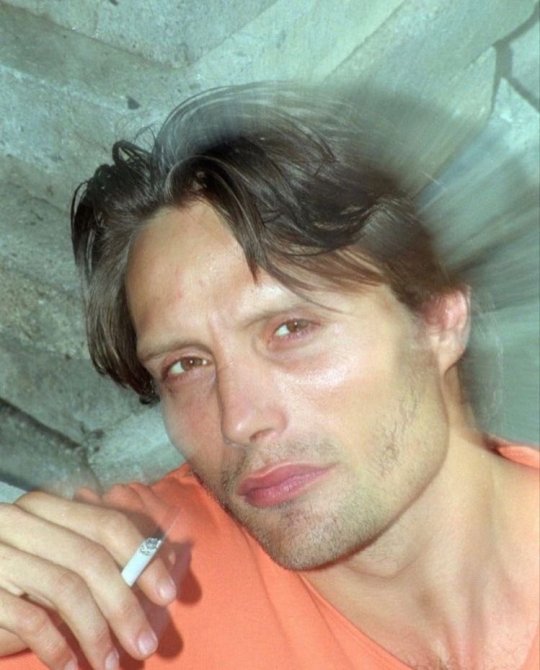



Oxbridge Hugh

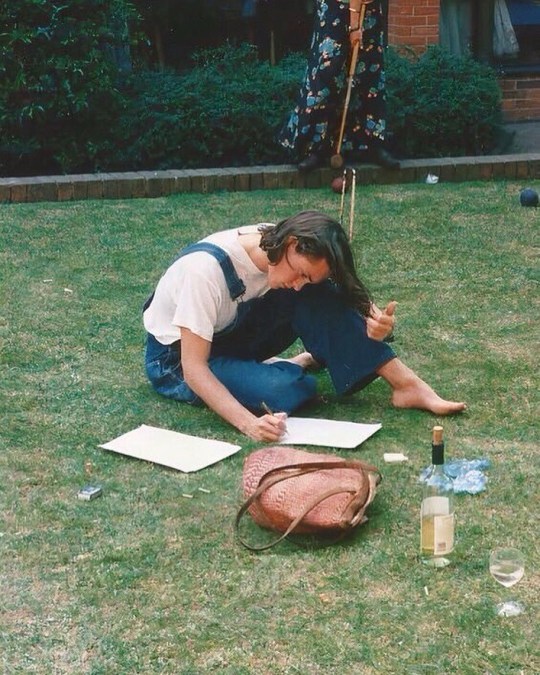
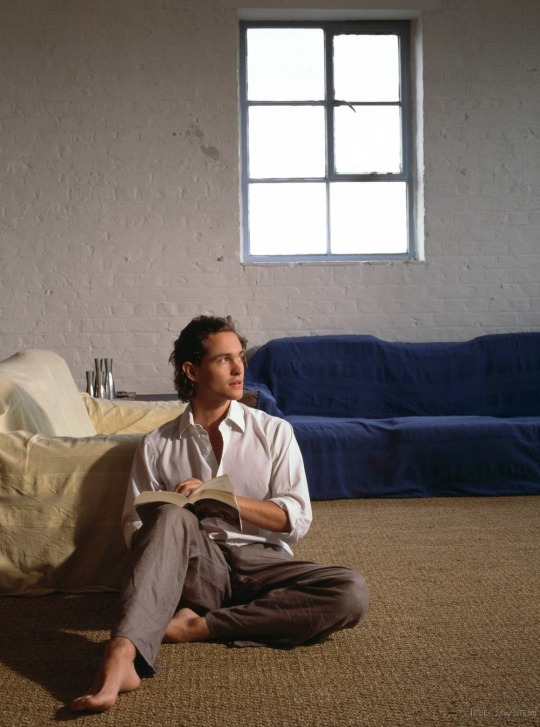
#amotm this is my design#hannigram#hannibunny#ficbunny#murder husbands#au idea#twink will#20s twunk sugar daddy hannibal#canon-typical 'platonic but increasingly / ludicrously slowburn homoerotic' vibes#I'm sure there are already a bunch of fis already like this#but the daydream just stuck with me#you could also do this as uni-student will / late 20s early 30s hannibal#but the bullying would IMO be more vicious / difficult to escape in a school scenario#this ficbunny brought to you by:#the sudden mental image of a 20s hunk Hannibal lounging in the grass like a young lion#(next to twink!will who is casting nervous glances out of the corner of his eye; trying to concentrate)#it's a sunny summer's day; they're under a mature tree; small groups of students trail past looking curiously/enviously at will#and the grounds around are a vast swathe of immaculate stripey lawn fringed by other mature trees and the school playing fields#maybe hannibal starts bringing a picnic blanket lap desk and elaborate french-style picnic so they can eat lunch together
24 notes
·
View notes
Text
I think an insane amount about the time I was in my school’s production of Annie (unnamed orphan number 9) and the kid who was playing Sandy would not stop banging on because he was a named character. And the rest of us were just the chorus.
Sir, you were wearing several rugs from Kmart! Crafted I’ll admit, very skillfully, into a dog costume 😂😂😂😂 But he had a mic, and I did not. All I had was a small dance feature in hard knock life.
#I would like to say: I am in no way a good dancer#talent was thin on the ground at my school#ironically the girl who was Annie in that production and sat next to me in senior English is actually on the stage now#she’s about to be in Hadestown I believe#the fact that we shared the stage is ludicrous 😂😂😂
31 notes
·
View notes
Text
"But the ship is pseudo-incestuous!!" THE GIRL CANONICALLY FUCKED HER ACTUAL COUSIN???
Like incest bad. Don't do incest. Don't be Lucy. But I feel like maybe thats not the grounds on which to be arguing here? Never mind that they are literally NOT related (no matter your personal headcanons). Ms. 'Incest is a normal part of growing up' probably isn't going to be morally hung up on that. Even if she (in the case of actual incest, not headcanon father figure pseudo-incest) absolutely should be.
I don't even ship it myself. But Lucy Maclean is a capital F Freak. You gotta accept that.
#like never mind that it is literally not incest and any supposed familial relationship is tenuous and headcanon based at best#one of the first things we learn about Lucy is that she's a Freak who's only concern regarding incest is the genetic fuckery it causes#she immediately suggested sex to a boy she had a crush on and met a few days earlier#she is not well adjusted and not normal and i love her for it#also i should not have to say this but to clarify i am not excusing incest. my point is that it would absolutely not stop lucy 🙏#lucy maclean#fallout#fallout tv show#fallout prime#fallout show#this isnt meant to be a thesis statment on shipping or anything btw i just thought it was funny and it is#vaultghoul / ghoulcy by proxy i suppose? even though as stated. i myself am a platonic worsties truther#this may be the most 'sharks just beyond the horizon' type posts ive ever made. but i hope the ludicrousness makes someone laugh
64 notes
·
View notes
Text
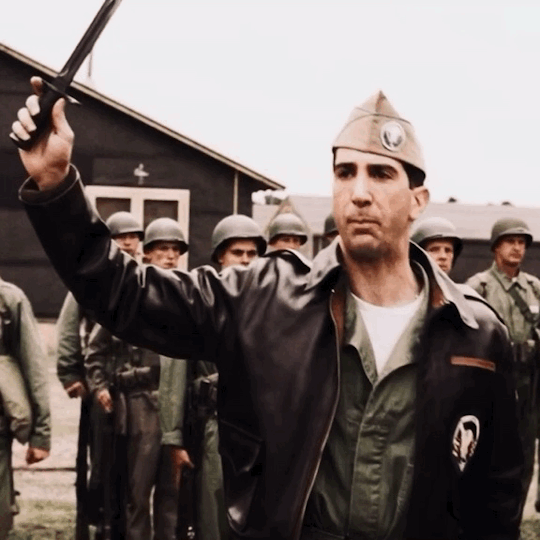
Every morning Dad got up early and made breakfast for her. If it was the dead of winter he pulled Mom’s car up to the front of the house, cleared off the snow, and turned on the heater for her. Every night after work Dad had a cocktail with Mom and they chatted about the events of the day. We went to family gatherings, where Dad was always well liked and lively. He was a great dad—very loving and attentive. He doted on my mother and was very much in love with her. I never heard him use profanity or witnessed him losing his temper. He never raised a hand to us kids when we didn’t deserve it—and there were plenty of times we did deserve it and didn’t get it.
~ Michael Sobel (Sobel's son)
#We Who Are Alive and Remain: Untold Stories from the Band of Brothers#band of brothers#herbert sobel#two things: first of all i am always so baffled that apparently it's not perfectly obvious/#/perfectly shown in the show that sobel made easy company into what it became. this tightknit more closer than brothers unit#to me the 'sobel got short-end of a stick' and wasn't portrayed how he was complaining has always seemed ludicrous#secondly: everything sobel's family said and complained about - i am kind of side-eyeing#sorry but sobel was for years in VA assisted-living facility. michael himself said that the living conditions there were horrible#yet none of them did anything to move him somewhere better? to be there more often so that they would have known when he died and be there#when he was cremated?#sounds to me that the fuss they made about how sobel was portrayed in the show/book was perhaps to do with their own guilt#anyway. may sobel rest in peace and we all know he is one the greater reasons why the easy company was so damn magnificent
50 notes
·
View notes
Note
Hey! It has been on my mind lately and i just wanna ask..idk if it would make sense but i just noticed that nowadays ppl cant separate the authors and their books (ex. when author wrote a story about cheating and ppl starts bashing the author for romanticizing cheating and even to a point of cancelling the author for not setting a good/healthy example of a relationship) any thoughts about it?
I have many, many thoughts on this, so this may get a little unwieldy but I'll try to corall it together as best I can.
But honestly, I think sometimes being unable to separate the author from the work (which is interesting to me to see because some people are definitely not "separating" anything even though they think they are; they just erase the author entirely as an active agent, isolate the work, and call it "objectivity") has a lot to do with some people being unable to separate the things they read from themselves.
I'm absolutely not saying it's right, but it's an impulse I do understand. If you read a book and love it, if it transforms your life, or defines a particular period of your life, and then you find out that the author has said or done something awful--where does that leave you? Someone awful made something beautiful, something you loved: and now that this point of communion exists between you and someone whose views you'd never agree with, what does that mean for who you are? That this came from the mind of a person capable of something awful and spoke to your mind--does that mean you're like them? Could be like them?
Those are very uncomfortable questions and I think if you have a tendency to look at art or literature this way, you will inevitable fall into the mindset where only "Good" stories can be accepted because there's no distinction between where the story ends and you begin. As I said, I can see where it comes from but I also find it profoundly troubling because i think one of the worst things you can do to literature is approach it with the expectation of moral validation--this idea that everything you consume, everything you like and engage with is some fundamental insight into your very character as opposed to just a means of looking at or questioning something for its own sake is not just narrow-minded but dangerous.
Art isn't obliged to be anything--not moral, not even beautiful. And while I expend very little (and I mean very little) energy engaging with or even looking at internet / twitter discourse for obvious reasons, I do find it interesting that people (online anyway) will make the entire axis of their critique on something hinge on the fact that its bad representation or justifying / romanticizing something less than ideal, proceeding to treat art as some sort of conduit for moral guidance when it absolutely isn't. And they will also hold that this critique comes from a necessarily good and just place (positive representation, and I don't know, maybe in their minds it does) while at the same time setting themselves apart from radical conservatives who do the exact same thing, only they're doing it from the other side.
To make it abundantly clear, I'm absolutely not saying you should tolerate bigots decrying that books about the Holocaust, race, homophobia, or lgbt experiences should be banned--what I am saying, is that people who protest that a book like Maus or Persepolis is going to "corrupt children", and people who think a book exploring the emotional landscape of a deeply flawed character, who just happens to be from a traditionally marginalised group or is written by someone who is, is bad representation and therefore damaging to that community as a whole are arguments that stem from the exact same place: it's a fundamental inability, or outright refusal, to accept the interiority and alterity of other people, and the inherent validity of the experiences that follow. It's the same maniacal, consumptive, belief that there can be one view and one view only: the correct view, which is your view--your thoughts, your feelings.
There is also dangerous element of control in this. Someone with racist views does not want their child to hear anti-racist views because as far as they are concerned, this child is not a being with agency, but a direct extension of them and their legacy. That this child may disagree is a profound rupture and a threat to the cohesion of this person's entire worldview. Nothing exists in and of and for itself here: rather the multiplicity of the world and people's experiences within it are reduced to shadowy agents that are either for us or against us. It's not about protecting children's "innocence" ("think of the children", in these contexts, often just means "think of the status quo"), as much as it is about protecting yourself and the threat to your perceived place in the world.
And in all honestt I think the same holds true for the other side--if you cannot trust yourself to engage with works of art that come from a different standpoint to yours, or whose subject matter you dislike, without believing the mere fact of these works' existence will threaten something within you or society in general (which is hysterical because believe me, society is NOT that flimsy), then that is not an issue with the work itself--it's a personal issue and you need to ask yourself if it would actually be so unthinkable if your belief about something isn't as solid as you think it is, and, crucially, why you have such little faith in your own critical capacity that the only response these works ilicit from you is that no one should be able to engage with them. That's not awareness to me--it's veering very close to sticking your head in the sand, while insisting you actually aren't.
Arbitrarily adding a moral element to something that does not exist as an agent of moral rectitude but rather as an exploration of deeply human impulses, and doing so simply to justify your stance or your discomfort is not only a profoundly inadequate, but also a deeply insidious, way of papering over your insecurities and your own ignorance (i mean this in the literal sense of the word), of creating a false and dishonest certainty where certainty does not exist and then presenting this as a fact that cannot and should not be challenged and those who do are somehow perverse or should have their characters called into question for it. It's reductive and infantilising in so many ways and it also actively absolves you of any responsibility as a reader--it absolves you of taking responsibility for your own interpretation of the work in question, it absolves you of responsibility for your own feelings (and, potentially, your own biases or preconceptions), it absolves you of actual, proper, thought and engagement by laying the blame entirely on a rogue piece of literature (as if prose is something sentient) instead of acknowledging that any instance of reading is a two-way street: instead of asking why do I feel this way? what has this text rubbed up against? the assumption is that the book has imposed these feelings on you, rather than potentially illuminated what was already there.
Which brings me to something else which is that it is also, and I think this is equally dangerous, lending books and stories a mythical, almost supernatural, power that they absolutely do not have. Is story-telling one of the most human, most enduring, most important and life-altering traditions we have? Yes. But a story is also just a story. And to convince yourself that books have a dangerous transformative power above and beyond what they are actually capable of is, again, to completely erase people's agency as readers, writers' agency as writers and makers (the same as any other craft), and subsequently your own. And erasing agency is the very point of censors banning books en masse. It's not an act of stupidity or blind ignorance, but a conscious awareness of the fact that people will disagree with you, and for whatever reason you've decided that you are not going to let them.
Writers and poets are not separate entities to the rest of us: they aren't shamans or prophets, gifted and chosen beings who have some inner, profound, knowledge the rest of us aren't privy to (and should therefore know better or be better in some regard) because moral absolutism just does not exist. Every writer, no matter how affecting their work may be, is still Just Some Guy Who Made a Thing. Writing can be an incredibly intimate act, but it can also just be writing, in the same way that plumbing is plumbing and weeding is just weeding and not necessarily some transcendant cosmic endeavour in and of itself. Authors are no different, when you get down to it, from bakers or electricians; Nobel laureates are just as capable of coming out with distasteful comments about women as your annoying cousin is and the fact that they wrote a genre-defying work does not change that, or vice-versa. We imbue books with so much power and as conduits of the very best and most human traits we can imagine and hope for, but they aren't representations of the best of humanity--they're simply expressions of humanity, which includes the things we don't like.
There are some authors I love who have said and done things I completely disagree with or whose views I find abhorrent--but I'm not expecting that, just because they created something that changed my world, they are above and beyond the ordinarly, the petty, the spiteful, or cruel. That's not condoning what they have said and done in the least: but I trust myself to be able to read these works with awareness and attention, to pick out and examine and attempt to understand the things that I find questionable, to hold on to what has moved me, and to disregard what I just don't vibe with or disagree with. There are writers I've chosen not to engage with, for my own personal reasons: but I'm not going to enforce this onto someone else because I can see what others would love in them, even if what I love is not strong enough to make up for what I can't. Terrance Hayes put perfectly in my view, when he talks about this and being capable of "love without forgiveness". Writing is a profoundly human heritage and those who engage with it aren't separate from that heritage as human because they live in, and are made by, the exact same world as anyone else.
The measure of good writing for me has hardly anything to do with whatever "virtue" it's perceived to have and everything to do with sincerity. As far as I'm concerned, "positive representation" is not about 100% likeable characters who never do anything problematic or who are easily understood. Positive representation is about being afforded the full scope of human feelings, the good, the bad, and the ugly, and not having your humanity, your dignity, your right to exist in the world questioned because all of these can only be seen through the filter of race, or gender, religion, or ethicity and interpreted according to our (profoundly warped) perceptions of those categories and what they should or shouldn't represent. True recognition of someone's humanity does not lie in finding only what is held in common between you (and is therefore "acceptable", with whatever you put into that category), but in accepting everything that is radically different about them and not letting this colour the consideration you give.
Also, and it may sound harsh, but I think people forget that fictional characters are fictional. If I find a particularly fucked up relationship dynamic compelling (as I often do), or if I decide to write and explore that dynamic, that's not me saying two people who threaten to kill each other and constantly hurt each other is my ideal of romance and that this is exactly how I want to be treated: it's me trying to find out what is really happening below the surface when two people behave like this. It's me exploring something that would be traumatizing and deeply damaging in real life, in a safe and fictional setting so I can gain some kind of understanding about our darker and more destructive impulses without being literally destroyed by them, as would happen if all of this were real. But it isn't real. And this isn't a radical or complex thing to comprehend, but it becomes incomprehensible if your sole understanding of literature is that it exists to validate you or entertain you or cater to you, and if all of your interpretations of other people's intentions are laced with a persistent sense of bad faith. Just because you have not forged any identity outside of this fictional narrative doesn't mean it's the same for others.
Ursula K. le Guin made an extremely salient point about children and stories in that children know the stories you tell them--dragons, witches, ghouls, whatever--are not real, but they are true. And that sums it all up. There's a reason children learning to lie is an incredibly important developmental milestone, because it shows that they have achieved an incredibly complex, but vitally important, ability to hold two contradictory statements in their minds and still know which is true and which isn't. If you cannot delve into a work, on the terms it sets, as a fictional piece of literature, recognize its good points and note its bad points, assess what can have a real world impact or reflects a real world impact and what is just creative license, how do you possible expect to recognize when authority and propaganda lies to you? Because one thing propaganda has always utilised is a simplistic, black and white depiction of The Good (Us) and The Bad (Them). This moralistic stance regarding fiction does not make you more progressive or considerate; it simply makes it easier to manipulate your ideas and your feelings about those ideas because your assessments are entirely emotional and surface level and are fuelled by a refusal to engage with something beyond the knee-jerk reaction it causes you to have.
Books are profoundly, and I do mean profoundly, important to me-- and so much of who I am and the way I see things is probably down to the fact that stories have preoccupied me wherever I go. But I also don't see them as vital building blocks for some core facet or a pronouncement of Who I Am. They're not badges of honour or a cover letter I put out into the world for other people to judge and assess me by, and approve of me (and by extension, the things I say or feel). They're vehicles through which I explore and experience whatever it is that I'm most caught by: not a prophylactic, not a mode of virtue signalling, and certainly not a means of signalling a moral stance.
I think at the end of the day so much of this tendency to view books as an extension of yourself (and therefore of an author) is down to the whole notion of "art as a mirror", and I always come back to Fran Lebowitz saying that it "isn't a mirror, it's a door". And while I do think it's important to have that mirror (especially if you're part of a community that never sees itself represented, or represented poorly and offensively) I think some people have moved into the mindset of thinking that, in order for art to be good, it needs to be a mirror, it needs to cater to them and their experiences precisely--either that or that it can only exist as a mirror full stop, a reflection of and for the reader and the writer (which is just incredibly reductive and dismissive of both)--and if art can only exist as a mirror then anything negative that is reflected back at you must be a condemnation, not a call for exploration or an attempt at understanding.
As I said, a mirror is important but to insist on it above all else isn't always a positive thing: there are books I related to deeply because they allowed me to feel so seen (some by authors who looked nothing like me), but I have no interest in surrounding myself with those books all the time either--I know what goes on in my head which is precisely why I don't always want to live there. Being validated by a character who's "just like me" is amazing but I also want--I also need-- to know that lives and minds and events exist outside of the echo-chamber of my own mind. The mirror is comforting, yes, but if you spend too long with it, it also becomes isolating: you need doors because they lead you to ideas and views and characters you could never come up with on your own. A world made up of various Mes reflected back to me is not a world I want to be immersed in because it's a world with very little texture or discovery or room for growth and change. Your sense of self and your sense of other people cannot grow here; it just becomes mangled.
Art has always been about dialogue, always about a me and a you, a speaker and a listener, even when it is happening in the most internal of spaces: to insist that art only ever tells you what you want to hear, that it should only reflect what you know and accept is to undermine the very core of what it seeks to do in the first place, which is establish connection. Art is a lifeline, I'm not saying it isn't. But it's also not an instruction manual for how to behave in the world--it's an exploration of what being in the world looks like at all, and this is different for everyone. And you are treading into some very, very dangerous waters the moment you insist it must be otherwise.
Whatever it means to be in the world, it is anything but straightforward. In this world people cheat, people kill, they manipulate, they lie, they torture and steal--why? Sometimes we know why, but more often we don't--but we take all these questions and write (or read) our way through them hoping that, if we don't find an answer, we can at least find our way to a place where not knowing isn't as unbearable anymore (and sometimes it's not even about that; it's just about telling a story and wanting to make people laugh). It's an endless heritage of seeking with countless variations on the same statements which say over and over again I don't know what to make of this story, even as I tell it to you. So why am I telling it? Do I want to change it? Can I change it? Yes. No. Maybe. I have no certainty in any of this except that I can say it. All I can do is say it.
Writing, and art in general, are one of the very, very, few ways we can try and make sense of the apparently arbitrary chaos and absurdity of our lives--it's one of the only ways left to us by which we can impose some sense of structure or meaning, even if those things exists in the midst of forces that will constantly overwhelm those structures, and us. I write a poem to try and make sense of something (grief, love, a question about octopuses) or to just set down that I've experienced something (grief, love, an answer about octpuses). You write a poem to make sense of, resolve, register, or celebrate something else. They don't have to align. They don't have to agree. We don't even need to like each other much. But in both of these instances something is being said, some fragment of the world as its been perceived or experienced is being shared. They're separate truths that can exist at the same time. Acknowledging this is the only means we have of momentarily bridging the gaps that will always exist between ourselves and others, and it requires a profound amount of grace, consideration and forbearance. Otherwise, why are we bothering at all?
#this is so much longer than i intended but yeah. those are my very long 2 cents#tbh i also think social media makes it worse in a way especially bc “transparency” has become a form of public vetting which is insane to m#me* transparency and honesty are not the same thing ans its ludicrous that this is where we're at and while we all have to live with this#demand for transparency i do think it affects writers differently bc the whole art as mirror thing comes to the fore in this argument#why would you sit with your feelings about a book when its easier and more accessible for you to @ the authors twitter handle#but anyway#ask#anonymous#book talks
396 notes
·
View notes
Text
tag game time! tagged by @mischieffoal. i'm cheating and doing living room bc it has more frogs things in it. tagging @winterwyrd @ultravioletness @frostsalts & anyone who wants to do it!
#take the crochet i don't want it i'm never going to finish it it haunts me daily#this is a ploy to shed the crochet. everything else i tried to pick things i would steal if i didnt have them#it has been a Hot Minute since i've done a tag game. this one is cute#hi beckett i'm putting our pinecone collection up for theft via tumblr poll hope you don't mind 💕#ludicrous picture of me as a person drawn by these things. sorry. at least i'm self-aware
22 notes
·
View notes
Text

hes my oc now >:)
#he would b sooooobad at peeling oranges#& breaking eggs........ oh gentle giant#curingb my woe#another ludicrous excuse to draw shapes hehhe#the sunflowers r thriving cuz theyre right next to da Sun!!!!!!!!!!!#matakara asamine#bucchigiri?!
49 notes
·
View notes
Text
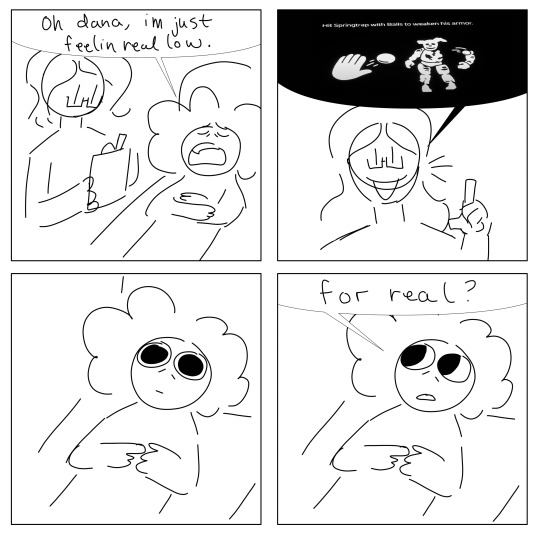
#thanks for the dm dana sjfdhsjdfs#genuinely like all the fatigue of the past few months hit all at once this morning and when im overly stressed my mental health#gets bad. like really really bad#it was nice 2 laugh abt something ridiculous ajkhjkdfsdh#fnaf#spacie scribbles#at first this was gonna be springtrap talking 2 me but it makes more sense if its you lmaoksjdfkslfdj#i dont remember what your sona looks like forgive me 😭#and i didnt wanna dig something up for this shitpost so#i shuld learn 2 draw gore so that when i feel really bad like this i can draw characters getting hurt#genuinely think that would make me feel better#well. ig ik what imma be spending the rest of tonight doing#imagine being such a pathetic old decrepit creature that a couple plastic balls are all it takes ta destroy you#i could beat his ass. its canonically possible for me ta beat his ass#i wouldnt even hafta try that hard#buddy. you're DONE#also his hips.....#damn#thighs are a weakness of mine like dude.#look at his shit bro. this is fucking ludicrous#the way his stance is#auuugh#sickening
123 notes
·
View notes
Text
i absolutely cannot wait for Margot Robbie to look the Kate McKinnon Barbie in the face and say “yeah okay i get it, i will go on the journey to self actualization, but if you think i’m wearing that fucking ugly shoe, you’re dreaming. i’ll take the high heel AND the map to the real world, please.”
#like the suggestion that barbie would wear a birkenstock is ludicrous#barbie#barbie 2023#barbie movie#barbie movie trailer#margot robbie#kate mckinnon#greta gerwig
221 notes
·
View notes
Text
Movie Tag Game
Tagged by: @canon-in-too-deep, @keldae, @elveny, @captainderyn -- thank you for the tag! (I finally remembered to do this)
Rules: without naming them, post a gif from ten of your favorite films, then tag ten people to do the same.










Tagging: I think I'm 15 days late with Starbucks to this, so everyone's been tagged. If you haven't, then now you're tagged.
#tag thing#meme thing#thanks for the tag!#ALAS#one of my favorite movies that i would rent over and over and over as a kid#this ludicrously violent direct to video 90s failed pilot turned movie#is so obscure there is no gifs of it#now i need to see if it's been digitized
10 notes
·
View notes
Note
could you do a complete ranking of every issue of archie
im gonna be honest man youd have to pay me to do that
#THIS IS TOO MUCH WORK. A LUDICROUS REQUEST....#this obv would necessitate a readthrough so i can have each issue fresh in my mind. which on its own would take a while#id enjoy it but it would take a while and i did just read archie from the start recently#but then id need to give thoughts on every single issue and rank it based on a bunch of other issues and my thoughts. not easy!
20 notes
·
View notes
Text

Don't remember what i was thinking when i sketched this. Finished it because it was staring at me in my sketch folder.
#fanart#digital art#fandom#my art#art#izutsumi#izutsumi dungeon meshi#dungeon meshi#delicious in dungeon#if you think this looks like naruto staring at kurama no you dont#leave this place i would never reference another anime in my anime drawing#that's ludicrous#crazy even
33 notes
·
View notes
Text
i've been worrying about my noman setup (200 pails, 80 vials) and whether it would give me enough time to make it all into noman's friend
but just today i found out that the Main Guy who was coordinating noman growth tracking last year (and had a noman who easily made it to whitsun) did it with both less pails AND less tears than i have. so i'm probably fine lol
#...unless i get REALLY unlucky#but it would have to be ludicrous bad luck for it not to work out#OR i miss days of card-flipping or action using#but with how much i've hyped this up to myself that's also pretty unlikely#ANYWAY i'm just excited#fallen london
9 notes
·
View notes